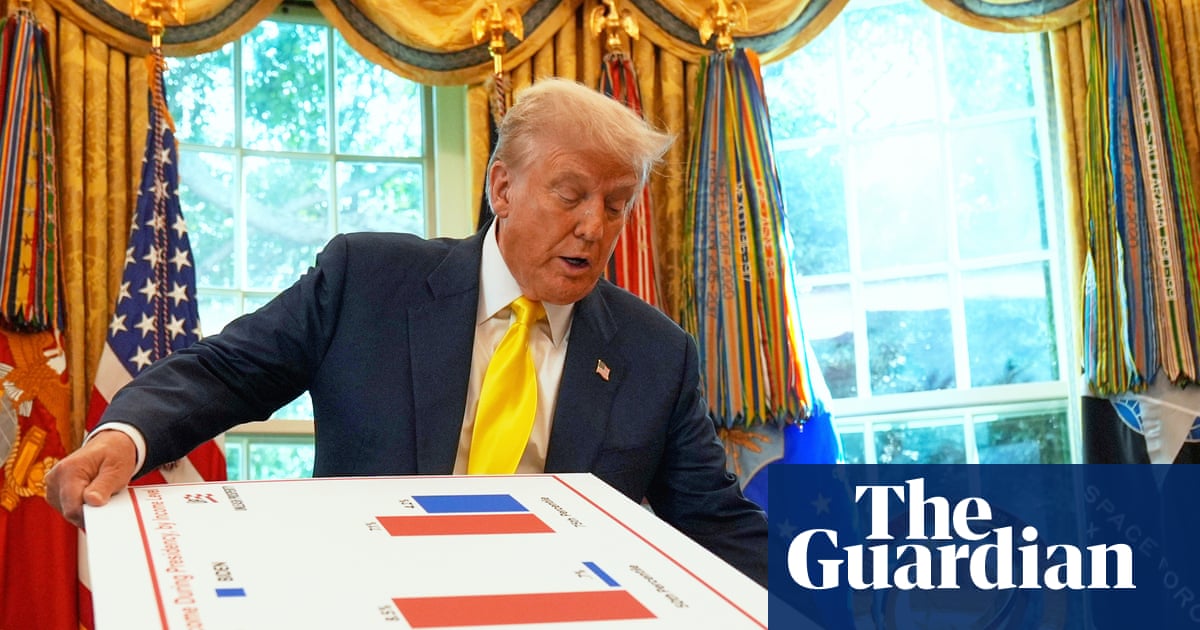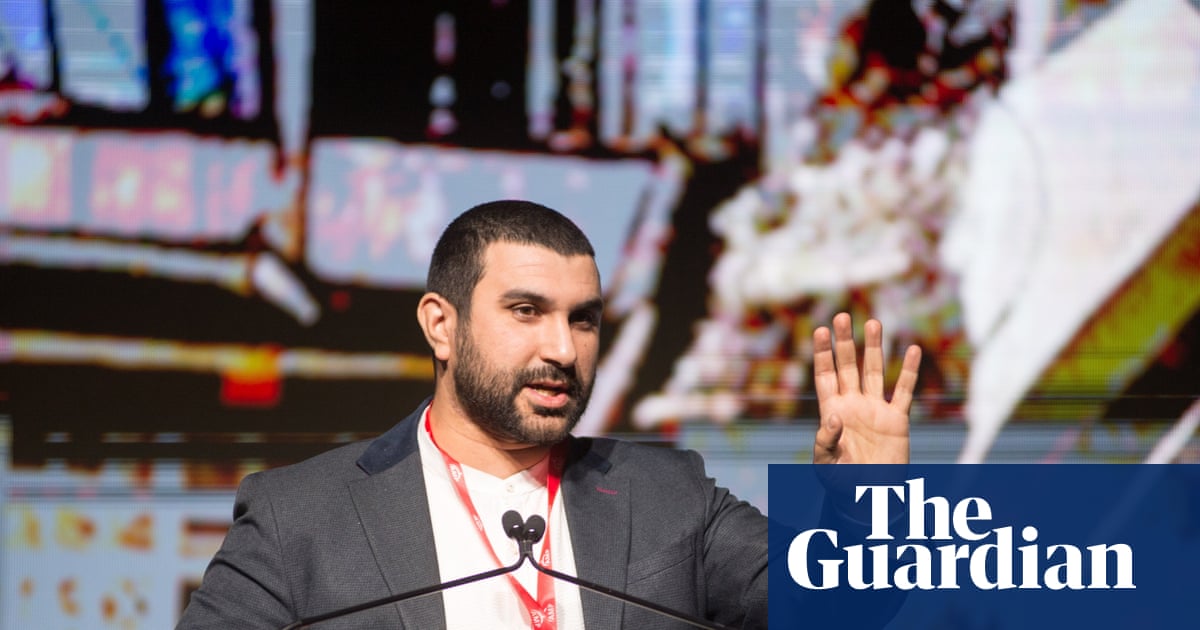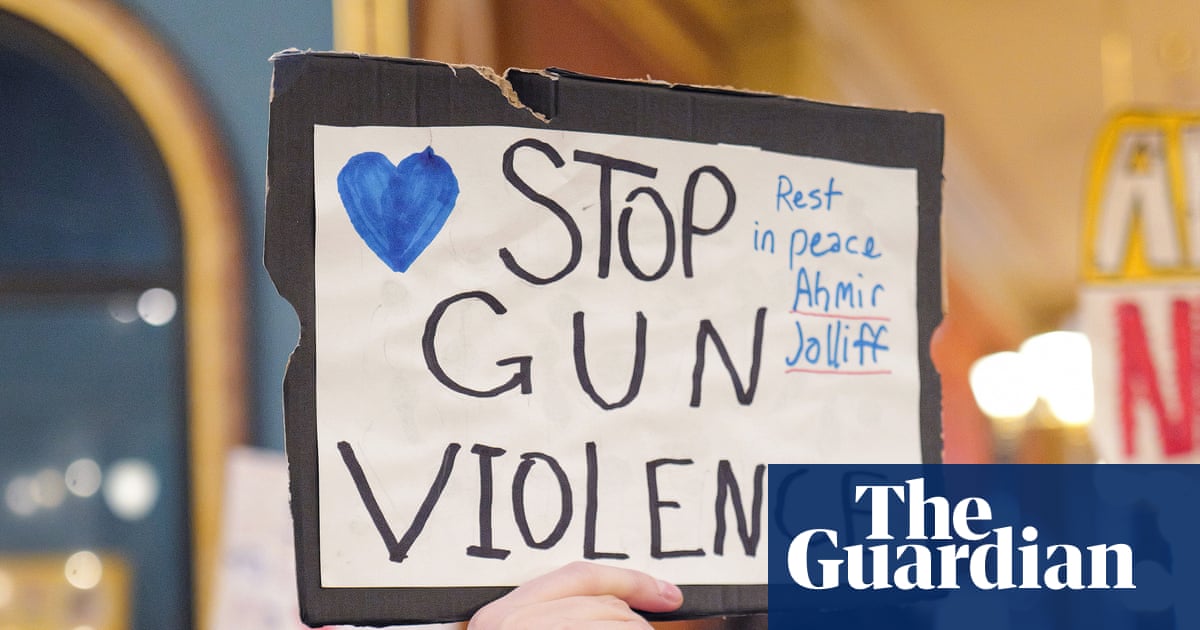The Trump administration has filed a first-of-its-kind civil rights lawsuit against pro-Palestinian groups and activists, accusing the advocates of violating a law that has traditionally been used to protect reproductive health clinics from anti-abortion harassment and violence.
The lawsuit, filed Monday by the justice department’s civil rights division, alleges that two advocacy groups and six people broke the Freedom of Access to Clinic Entrances (Face) Act when they protested against an event at a West Orange, New Jersey, synagogue in November 2024. The event at the Ohr Torah synagogue promoted the sale of property in Israeli settlements in the occupied West Bank, which are widely considered illegal under international law. Similar events have sparked protests in the years since the outbreak of the war in Gaza, but this event escalated into violence.
One man, a pro-Israel counterprotester, pepper-sprayed a pro-Palestinian demonstrator, while another counterprotester bashed the same demonstrator in the head with a flashlight, according to a local news outlet. Local New Jersey prosecutors ultimately filed charges against the two counterprotestors on multiple counts, including aggravated assault. (The pair have denied the accusations against them.)
The lawsuit filed by the Trump administration portrays the pro-Palestinian advocates as the aggressors. It alleges that some of the advocates physically assaulted at least one pro-Israel protester, effectively used vuvuzelas “as weapons” – arguing that the horns are “reasonably known to lead to permanent noise-induced hearing loss” – and ultimately disrupted both a memorial service and a lecture on the Torah.
“These violent protesters meant their actions for evil, but we will use this case to bring forth good: the protection of all Americans’ religious liberty,” Harmeet K Dhillon, an assistant attorney general in the justice department’s civil rights division, said in a press conference Monday.
The Trump administration is asking a court to fine the pro-Palestinian demonstrators more than $30,000 for their first violation of the Face Act, and roughly $50,000 for each subsequent violation.
One of the groups named in the lawsuit, American Muslims for Palestine-New Jersey, did not immediately respond to a request for comment. The national branch of another group, the Party for Socialism and Liberation-New Jersey, also did not immediately respond. The other defendants could not be immediately reached for comment.
The Face Act penalizes people who go beyond peaceful protest to threaten, obstruct or injure someone who is trying to access a reproductive health clinic or “place of religious worship”, but the federal government has never used the act to protect houses of worship, Dhillon confirmed during the press conference. Instead, it has historically been used to guard abortion clinics, since former president Bill Clinton signed the 1994 bill into law amid unprecedented violence against abortion providers and clinics. It is so unpopular among anti-abortion advocates that Republicans have repeatedly called for the repeal of the Face Act.
For Mary Ziegler, a professor at the University of California, Davis School of Law, the new case is especially striking because the Trump administration announced earlier this year that it would dramatically curtail its use of the Face Act to protect abortion clinics. Donald Trump has also pardoned several anti-abortion protesters who had been convicted under the Face Act.
“It probably feels like a slap in the face to people who support reproductive rights,” said Ziegler, who studies the legal history of reproduction. “The administration has said it’s open season when it comes to the Face Act and reproductive health clinics – but is being pretty aggressive in enforcing it when it comes to places of worship.”
Ziegler also sees this use of the Face Act as a means of bigfooting local prosecutors in blue states – and, potentially, cracking down on protests writ large.
“If you’re the Trump administration and you want to shut down pro-Palestinian protests altogether, reaching for the Face Act makes sense,” Ziegler said. “The reason the Face Act was put into place is because people were worried that clinic blockades were dangerous and were leading to violence – and, more importantly, because other criminal laws weren’t getting the job done. So the Trump administration is looking to a federal law with steeper penalties probably for a similar reason.”

 German (DE)
German (DE)  English (US)
English (US)  Spanish (ES)
Spanish (ES)  French (FR)
French (FR)  Hindi (IN)
Hindi (IN)  Italian (IT)
Italian (IT)  Russian (RU)
Russian (RU)  3 weeks ago
3 weeks ago
























Comments